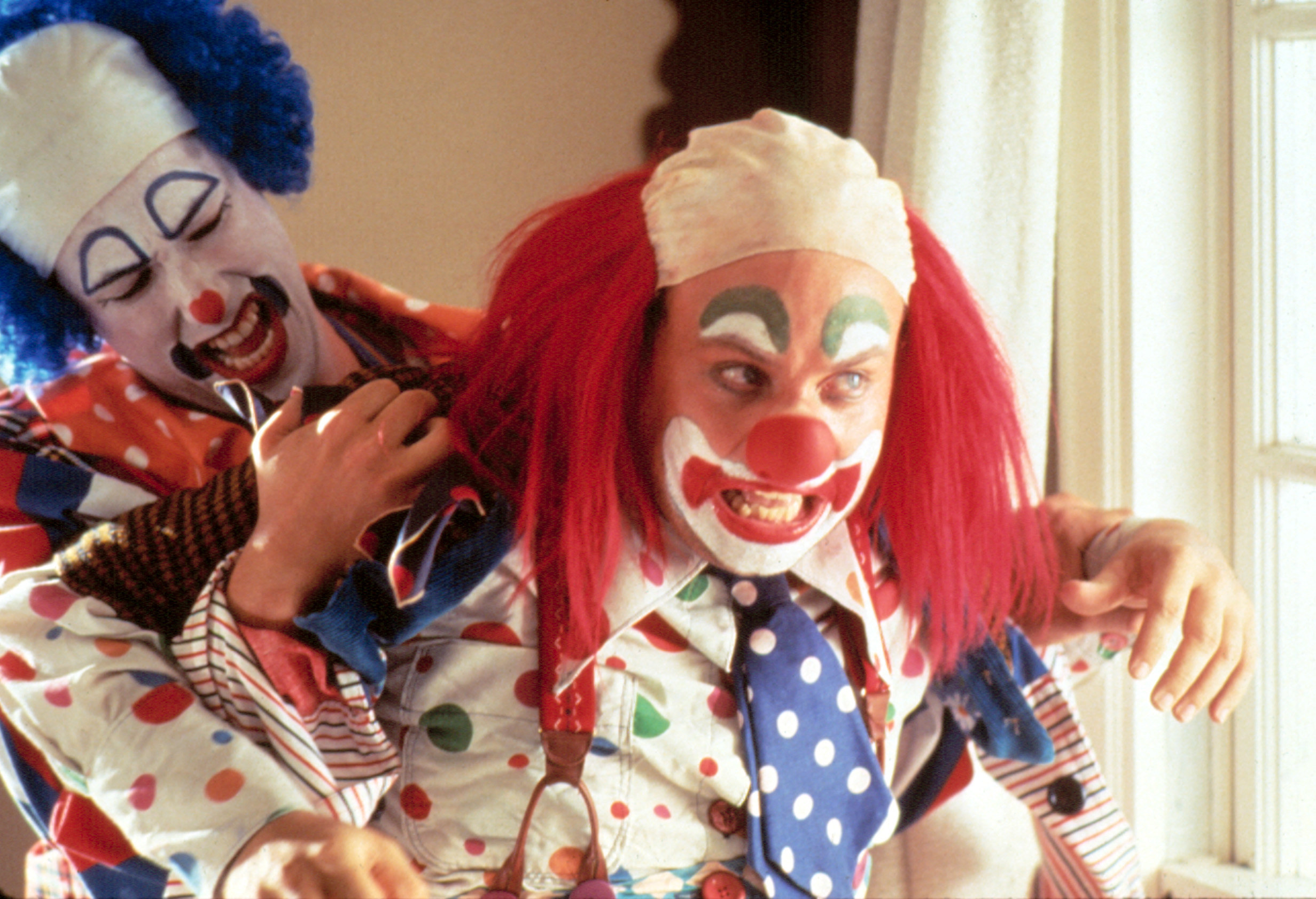The Origins and Evolution of “Shakes the Clown”

The phrase “Shakes the Clown” is a colloquial term that has evolved over time, taking on various meanings and cultural significance. Its origins can be traced back to the early days of vaudeville, while its modern usage often reflects a humorous and sometimes ironic perspective on the clown archetype.
The Early Days of “Shakes the Clown”
The origins of the phrase “Shakes the Clown” are uncertain, but it is believed to have emerged from the world of vaudeville in the late 19th and early 20th centuries. Vaudeville was a popular form of entertainment that featured a variety of acts, including comedians, singers, dancers, and acrobats. Clowns were a staple of vaudeville, and they often used physical comedy and slapstick to entertain audiences.
“Shakes the Clown” likely emerged as a nickname for a particular clown who was known for his shaking movements or his comedic use of trembling.
It is possible that the phrase was initially used to describe a specific clown, but it gradually became more generalized and used to refer to any clown who exhibited similar comedic traits. The term “Shakes the Clown” captured the essence of a particular style of clown performance, one that relied on physical humor and exaggerated movements.
The Evolution of “Shakes the Clown”
Over time, the phrase “Shakes the Clown” evolved from a specific nickname to a more general term for clowns. It began to encompass a wider range of clown characters and performances, reflecting the changing nature of clown culture. The term also began to take on a more ironic and satirical connotation, as it was often used to describe clowns who were not necessarily funny or entertaining.
“Shakes the Clown” became a way to refer to clowns who were perceived as being out of touch with contemporary sensibilities, or who were simply not as successful as other clowns.
This shift in meaning reflects the changing role of clowns in popular culture. Clowns have traditionally been seen as symbols of joy and laughter, but they have also been associated with darkness and the macabre. This duality has been reflected in the evolution of the phrase “Shakes the Clown.”
The Cultural Significance of “Shakes the Clown”
The phrase “Shakes the Clown” has become a part of popular culture, and it is often used to describe a range of situations and characters. It is a versatile term that can be used to express humor, irony, and even a sense of unease.
“Shakes the Clown” has been used to describe everything from incompetent politicians to awkward social situations, reflecting the phrase’s ability to capture a wide range of emotions and experiences.
The phrase’s cultural significance lies in its ability to evoke a sense of both amusement and discomfort. It reminds us of the inherent contradictions of the clown archetype, and it forces us to confront the darker side of humor.
The Use of “Shakes the Clown” in Popular Media

The phrase “Shakes the Clown” has transcended its origins in the film of the same name and found its way into various corners of popular media, often serving as a reference point for absurdity, chaos, and the unconventional. While the phrase itself may not be widely recognized, its presence in these media forms contributes to a broader understanding of the film’s lasting impact and the cultural significance of its central character.
The Phrase’s Appearance in Movies and TV Shows
The phrase “Shakes the Clown” has occasionally surfaced in other movies and TV shows, often used as a humorous reference or a subtle nod to the film’s unique style. For instance, in the 1998 film “The Big Lebowski,” the character Walter Sobchak, played by John Goodman, mentions “Shakes the Clown” in a scene where he’s discussing the absurdity of a situation. This reference is particularly noteworthy because it connects the film to another cult classic known for its unconventional humor and characters. Similarly, the phrase has been used in TV shows like “The Simpsons” and “Family Guy,” further highlighting its place in pop culture.
The Phrase’s Use in Music
The phrase “Shakes the Clown” has also made its way into the world of music, appearing in song titles and lyrics. One notable example is the song “Shakes the Clown” by the band “The Cramps,” which references the film and its titular character. This song, with its dark humor and punk rock aesthetic, echoes the film’s own rebellious spirit and its exploration of the darker side of clown culture.
The Phrase’s Appearance in Other Media
Beyond movies, TV shows, and music, the phrase “Shakes the Clown” has also been used in other forms of media, including online forums, social media, and even in video game titles. Its use in these contexts often serves as a meme or a humorous reference, signifying the film’s enduring influence and the character’s lasting cultural impact.
The Impact of “Shakes the Clown” on Society

The phrase “Shakes the Clown” has transcended its origins as a fictional character and become a cultural phenomenon, leaving a lasting impact on society. Its influence extends beyond the realm of entertainment, permeating language, humor, and popular culture, shaping how we think and communicate.
The Phrase’s Influence on Language and Humor
The phrase “Shakes the Clown” has become a widely recognized and frequently used idiom, often employed in a humorous context. Its ability to evoke laughter and amusement stems from its inherent absurdity and the juxtaposition of the seemingly innocent image of a clown with the often-negative connotations associated with the word “shakes.” The phrase’s adaptability to various situations and its ability to be used both literally and figuratively contribute to its enduring popularity.
- The phrase’s widespread use has led to the creation of numerous memes and internet jokes, further solidifying its place in contemporary online culture.
- The phrase has also been incorporated into various forms of popular media, including television shows, movies, and music, where it is often used to inject humor or create a sense of absurdity.
The Phrase’s Influence on Popular Culture
The phrase “Shakes the Clown” has also had a significant impact on popular culture, particularly in the realm of comedy and entertainment. The phrase’s inherent absurdity and its association with the clown character have inspired countless creative works, including stand-up routines, sketch comedy shows, and even musical acts.
- The phrase has been used as a title for various comedic works, including stand-up specials, television shows, and even movies.
- The phrase’s association with the clown character has also led to the creation of numerous comedic characters and personas, often inspired by the absurdity and unpredictability of the original “Shakes the Clown” character.
The Broader Implications of the Phrase’s Use
Beyond its influence on language, humor, and popular culture, the phrase “Shakes the Clown” also has broader implications for society. The phrase’s ability to evoke both laughter and discomfort highlights the complex relationship between humor and social norms. The phrase’s use can be seen as a form of social commentary, reflecting on the absurdity of certain aspects of human behavior and societal structures.
- The phrase’s widespread use can be seen as a reflection of the increasing acceptance of dark humor and absurdist comedy in contemporary society.
- The phrase’s use can also be interpreted as a form of rebellion against societal norms and expectations, challenging traditional notions of humor and social behavior.
Shakes the Clown, with his oversized shoes and mischievous grin, was a true master of chaos. He reminded me of the energy and unpredictability of a band like van halen , always pushing boundaries and delivering a performance that left you breathless.
Just like the band’s iconic guitar solos, Shakes’ antics were a whirlwind of surprises, leaving audiences both bewildered and entertained.
Shakes the Clown is a character that always brings a smile to my face, reminding me of the quirky and lovable uncles we all have. It’s like a real-life version of Uncle Buck , a character who brings laughter and chaos wherever he goes, but ultimately has a heart of gold.
Shakes the Clown, with his colorful attire and goofy antics, reminds us that life is meant to be enjoyed, even if it means embracing the ridiculous sometimes.
